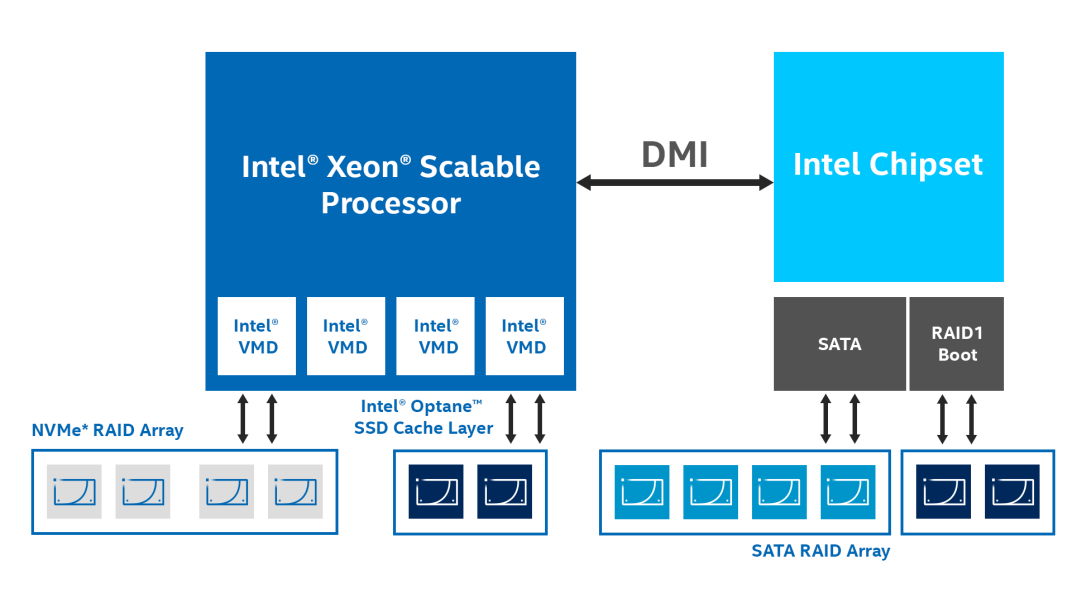
Intel Kills VROC Prematurely, Then Changes Course

Intel surprisingly posted a product change notice on January 6 that it had decided to discontinue its important Virtual Raid on CPU (VROC) technology that is popular with its data center Xeon chips, including the fourth-gen Xeon models that launched last week. The feature is also present on some of Intel’s consumer-focused Core models. We reached out to Intel for details about the unexpected change last week, and today we’re told the notice was posted prematurely.
“The PCN was prematurely posted while the decision was under evaluation. After discussing with the ecosystem and customers we realize there is significant demand for this product and intend to continue to support it.” — Intel Spokesperson to Tom’s Hardware.
The VROC functionality is activated via different types of physical RAID keys that plug into the motherboard, each enabling a different level of RAID support. The keys cost between $100 for basic functionality (opens in new tab) to $250 for the full-featured model (opens in new tab). Intel also offered these keys for consumer systems for some time, but they didn’t gain much traction.
Surprisingly, Intel originally posted January 23, 2023, as the last order date for the products. That’s a mere 17 days after the initial posting that announced that “all support for VROC (Virtual Raid on CPU) software will be discontinued.” Now we’ve learned that won’t be the case.
This isn’t the first time the company has issued a product notice in error — with a product stack as broad as Intel’s, mistakes are bound to happen. Much like when the company put out a notice that its consumer chips were dying from a bus degradation issue, but later moonwalked the statement back to say the notice was in error.

The VROC feature debuted in 2017 to simplify and reduce the cost of high-performance storage arrays, and it has enjoyed broad uptake in enterprise applications. The feature brings NVMe RAID functionality on-die to the CPU for SSD storage devices, thus providing many of the performance, redundancy, bootability, manageability, and serviceability benefits that were previously only accessible with an additional device, like a RAID card or HBA. Thus, VROC gives users a host of high-performance storage features without the added cost, power consumption, heat, and complexity of another component, like a RAID card or HBA, in the chassis — not to mention extra cabling.
Pat Gelsinger’s shift to focusing on the company’s core competency — logic chips — has seen the company stepping away from several of its ‘adjacencies,’ like its storage business. It’s unclear if the uncertainty that formed around the VROC tech stems from Intel’s sale of its storage business to SK hynix, which also contributed to the company ceasing further development of its Optane-based products as it sells off its remaining inventory. Intel designed its VROC software to also work in tandem with its own storage products, so it’s possible that the groups responsible for this software were within the storage organization that is headed to SK hynix as part of the sale.
In either case, users and OEMs alike have nothing to worry about, as Intel has decided to continue supporting the VROC feature. As such, the company has removed the original cancellation notice.

